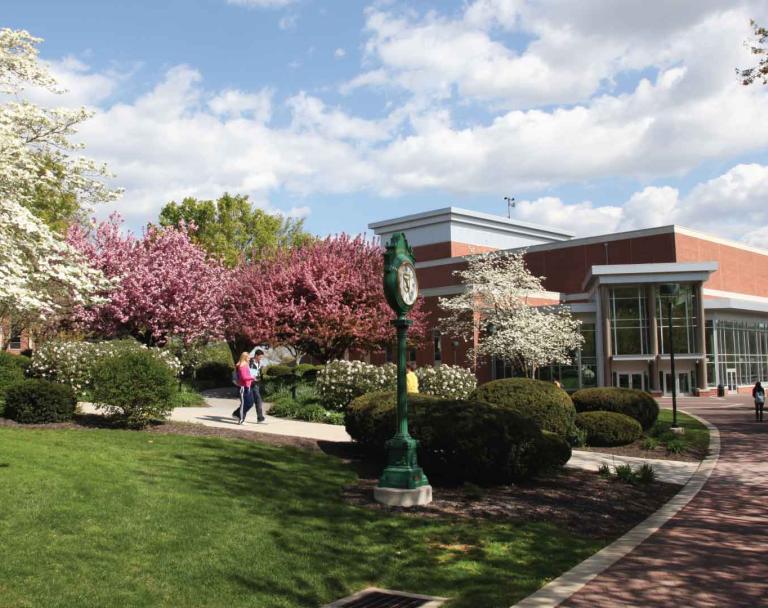York College partners with The Small World Initiative to offer research program to students

- News and Events
- News Stories
York College partners with The Small World Initiative to offer research program to students
October 01, 2021 Wendy Boehmler (center) works with a student on The Small World Initiative research in one of the College's labsYORK, Pa. – York College of Pennsylvania is recognized as a partner of The Small World Initiative, a global research team that is searching for antibiotic-producing microbes in soil. Associate Professor of Biology Wendy Boehmler applied for and has been trained, along with two of her colleagues, Instructor of Biology Anthony Botyrius and Assistant Professor of Biology Meda Higa, to participate in this original research program with some of their first-year students.
The Small World Initiative (SWI) is an innovative program that encourages students to pursue careers in science while addressing a worldwide health threat – superbugs and the diminishing supply of effective antibiotics. Through SWI, students from around the world experience hands-on learning and real-world applicable laboratory and field research in introductory courses. More than 10,000 students have taken or are taking SWI’s introductory biology course.
Boehmler attended a presentation on how to use an authentic research experience in biology to better engage students in the scientific process at the National Association of Biology Teachers 2020 Professional Development Conference. “During the discussion, another colleague mentioned the Small World Initiative,” she said. “The more I researched the program, the more I wanted to introduce this initiative with my first semester Biology students.”
Starting this semester, Boehmler and her colleagues are participating in the research program with first-year students in Biology, Environmental Science, and Environmental Horticulture. Because most antibiotics come from soil microbes, students begin their hunt for novel antibiotic-producing soil bacteria by heading outdoors to collect a soil sample. They then isolate the diverse array of bacteria in the lab and test them for antibiotic activity against known human pathogens. Those displaying antimicrobial properties will be analyzed further by a series of genetic and biochemical test to identify the isolate. The ultimate goal then would be to chemically extract the antibiotic and further test it. “Students have collected their own soil samples and have plated the soil to begin looking for bacterial growth,” she said. “They plan to screen these microbes for antibiotic producers soon.”
The Biology program at York College has a long history of engaging students in scientific research. “We pride ourselves in including all students in our research endeavors – it is part and parcel to our program, Boehmler said. “However, this opportunity is usually reserved for third- and fourth-year students. The Small World Initiative project allows first semester students to be a part of scientific discovery from the very start of their academic careers at YCP. It is my hope that it reinforces their passion for STEM, which in turn can lead to better retention of our future scientists.”
News Stories View all News Stories
